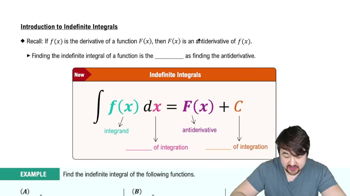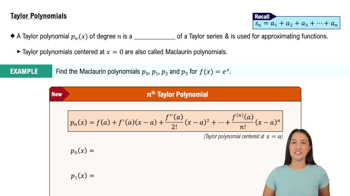7–64. Integration review Evaluate the following integrals.
62. ∫ (-x⁵ - x⁴ - 2x³ + 4x + 3) / (x² + x + 1) dx
 Verified step by step guidance
Verified step by step guidance Verified video answer for a similar problem:
Verified video answer for a similar problem:



 5:04m
5:04mMaster Introduction to Indefinite Integrals with a bite sized video explanation from Patrick
Start learning